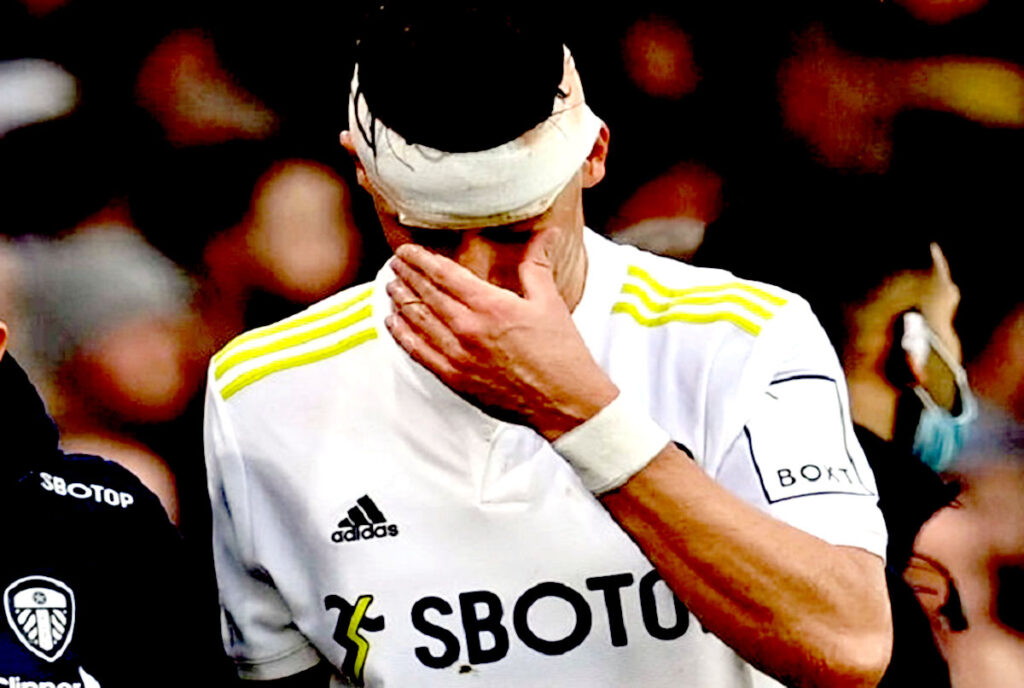The English Professional Footballers’ Association (PFA) said Monday that players need to be substituted when they have concussions because there is a lot of pressure on medical staff to get results quickly.
On Sunday, Robin Koch, a player for Leeds United, was taken off 19 minutes into a 4-2 loss to Manchester United because he had a head injury that required bandaging.
For the last year, the Premier League has deployed permanent concussion replacements, enabling each team to make up to two more substitutions.
If a player is replaced, he or she is not eligible to return to the field. In contrast, in rugby, a replacement enters the game while an off-field head injury examination is conducted.
The PFA tweeted on Monday that “the incident involving Robin Koch of Leeds United proves once again that football’s existing concussion standards fail to prioritise player safety.”
“We often witness instances of athletes resuming play after sustaining a possible brain damage, only to be withdrawn soon afterwards when symptoms dramatically deteriorate.”
The PFA said that it has told football’s international governing body, the IFAB, what it thinks about this.
“As the players’ representative body in England, we have made it quite plain to @TheIFAB that we support the introduction of temporary concussion replacements.”
“Temporary replacements for concussions will provide medical personnel with more time and an acceptable atmosphere in which to conduct an initial examination.”
“By introducing temporary substitutions, a match may be restarted with neither team statistically disadvantaged, relieving pressure on players and medical personnel to make split-second choices about whether to continue an injured player.
“To put it simply, the present regulations established by @TheIFAB are ineffective and put players in danger.”
Leeds couldn’t use one of their concussion replacements for Koch because manager Marcelo Bielsa said that Koch had a cut on his head, not a concussion, which is why he had to leave.
Willie Stewart, a neuropathologist who has studied the long-term effects of head injuries on football players, has said that football should follow rugby’s lead.
“Unquestionably! Rugby has made significant progress in terms of knowing how to diagnose and identify individuals with brain injuries on the field, and that should serve as a model and standard for (other) sports,“ Stewart told a British parliamentary investigation last year.
Stewart’s 2019 research discovered that former players are around three and a half times more likely than the general population to die of neurological illness.
Such ailments have afflicted many members of England’s 1966 World Cup-winning squad.

